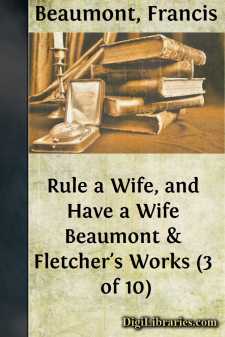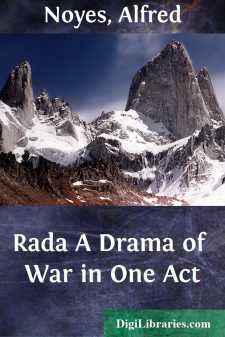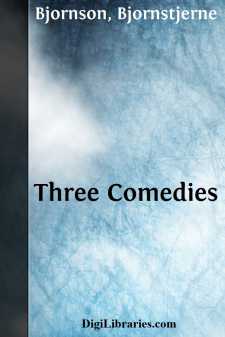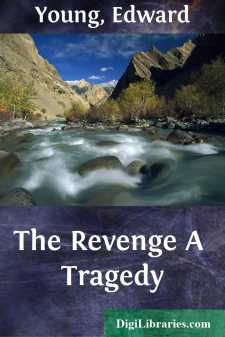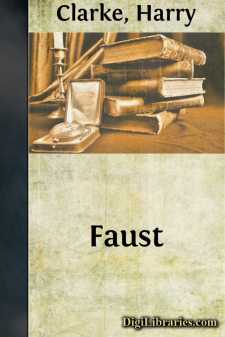Drama
General Books
Sort by:
by:
Francis Beaumont
Actus PrimusScena PrimaEnter Juan de Castro, and Michael Perez. Michael PerezAre your Companies full, Colonel? Juan de CastroNo, not yet, Sir:Nor will not be this month yet, as I reckon;How rises your Command? Michael PerezWe pick up still, and as our monies hold out,We have men come, about that time I thinkWe shall be full too, many young Gallants go. Juan de CastroAnd unexperienced,The Wars are dainty...
more...
PEOPLE IN THE PLAY ALICE GARDNER: Daughter of James K. Gardner, President of the L.I. & W. Railroad "UNCLE" JOSEPH HATCH: Alias "Gentleman Joe" "BRICK" MEAKIN: Alias "Reddy, the Kid" HARRY HAYES: Alias "Grand Stand" Harry CAPTAIN LUCAS: Chief of Police Policemen, Brakemen, Engineers Scene—The dining room in the country house of James K. Gardner on Long...
more...
by:
Alfred Noyes
RADA SCENE—_A guest-chamber, the typical living-room of a prosperous village doctor in the Balkans. On the left, a small window and an entrance door. On the right, a door leading into a bedroom. At the back, an open fire of logs is burning brightly. Over the fireplace is the eikonostasis, with three richly coloured and gilded eikons, the central one of the Madonna. The light, which is never allowed...
more...
ACT I (SCENE.—A handsomely furnished, carpeted room, with a door at the back leading to a lobby. The FATHER is sitting on a couch on the left-hand side, in the foreground, reading a newspaper. Other papers are lying on a small table in front of him. AXEL is on another couch drawn up in a similar position on the right-hand side. A newspaper, which he is not reading, is lying on his knee. The MOTHER is...
more...
SCENE I. A spacious hall, supported on columns, with entrances on both sides;at the back of the stage a large folding-door leading to a chapel. DONNA ISABELLA in mourning; the ELDERS OF MESSINA. ISABELLA.Forth from my silent chamber's deep recesses,Gray Fathers of the State, unwillinglyI come; and, shrinking from your gaze, upliftThe veil that shades my widowed brows: the lightAnd glory of my days...
more...
by:
Bernard Shaw
Where Heartbreak House Stands Heartbreak House is not merely the name of the play which follows this preface. It is cultured, leisured Europe before the war. When the play was begun not a shot had been fired; and only the professional diplomatists and the very few amateurs whose hobby is foreign policy even knew that the guns were loaded. A Russian playwright, Tchekov, had produced four fascinating...
more...
by:
Edward Young
ACT THE FIRST. SCENE I.BATTLEMENTS, WITH A SEA PROSPECT. Enter Zanga. Zan.Whether first nature, or long want of peace,Has wrought my mind to this, I cannot tell;But horrors now are not displeasing to me:[thunder.I like this rocking of the battlements.Rage on, ye winds; burst, clouds; and, waters, roar!You bear a just resemblance of my fortune,And suit the gloomy habit of my soul.Enter...
more...
by:
Robert Garnier
Sieur du Pleßis Marly. T seemes to mee strange, and a thing much to be marueiled, that the laborer to repose himselfe hasteneth as it were the course of the Sunne: that the Mariner rowes with all force to attayne the porte, and with a ioyfull crye salutes the descryed land: that the traueiler is neuer quiet nor content till he be at the ende of his voyage: and that wee in the meane while tied in this...
more...
by:
Eugene O'Neill
SCENE I SCENE—The firemen's forecastle of a transatlantic liner an hour after sailing from New York for the voyage across. Tiers of narrow, steel bunks, three deep, on all sides. An entrance in rear. Benches on the floor before the bunks. The room is crowded with men, shouting, cursing, laughing, singing—a confused, inchoate uproar swelling into a sort of unity, a meaning—the bewildered,...
more...
by:
Harry Clarke
I Erhabener Geist, im Geisterreich verloren! Wo immer Deine lichte Wohnung sey,Zum höh'ren Schaffen bist Du neugeboren,Und singest dort die voll're Litanei.Von jenem Streben das Du auserkoren,Vom reinsten Aether, drin Du athmest frei,O neige Dich zu gnädigem ErwiedernDes letzten Wiederhalls von Deinen Liedern! II Den alten Musen die bestäubten KronenNahmst Du, zu neuem Glanz, mit kühner...
more...


